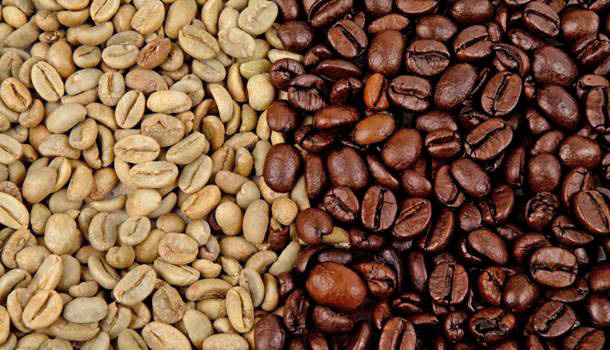The harm of decaf: it is more likely to develop heart disease and is not suitable for patients with hyperlipidemia.

Professional coffee knowledge exchange more coffee bean information please follow the coffee workshop (Wechat official account cafe_style)
The origin and development of decaf: why are all Swiss decaf sold?
Are you a coffee person? Doctors warn that drinking decaffeinated coffee will not make you healthier, but may increase the risk of heart disease; pregnant women need to be more moderate in drinking coffee, no more than three cups a day, otherwise the risk of miscarriage will double.
In a three-month survey of 187 people by the National Institutes of Health, 1/3 of them drank three to six cups of regular coffee a day, the second group drank the same amount of decaf coffee, and the third group drank none at all. The researchers then measured the amount of caffeine in their blood and a number of other measurements that measured heart function, including blood pressure, heartbeat, and cholesterol (news, website) index.
It was found that people who drank low caffeine had higher levels of bad cholesterol, resulting in a 18% increase in fatty acids in their blood, but there was no change in the other two groups. Too much bad cholesterol can lead to heart disease and diabetes (news, website).
Dr. Robert Superko, a physician at the Fuqua Heart Center in Atlanta, who led the study, said the results break the long-held belief that drinking decaffeinated coffee is healthy. "if you only drink one cup of coffee a day, you don't need to worry too much, because you have relatively low caffeine levels."
The British Heart Association also said that if people only drink a cup of coffee every day or every two days, there is no need to panic.
On the other hand, according to a survey and study of 88000 pregnant women conducted by the University of Aarhus in Denmark between March 1996 and November 2002, 3008 women drank at least eight cups of coffee a day, resulting in 67 of the 1,102 infant deaths, plus many of these women had the habit of smoking and drinking. It may also increase their chances of miscarriage.
The researchers also looked at pregnant women who drank a lot of tea and cola, but did not find an increased risk of miscarriage or stillbirth, which could be caused by chemicals other than caffeine. Doctors advise pregnant women to drink the right amount of coffee for the health of the fetus.
[VOA reporter: Shen Honghui, Washington, December 12, 2005] A recent study presented at a meeting of the American Heart Association said that decaffeinated coffee may increase the risk of heart disease. The report was written by Robert, a cardiologist at the Fujia Heart Center in Atlanta. Superk.
According to the study, non-caffeinated coffee, rather than caffeinated coffee, increases the amount of fat in the blood, resulting in more cholesterol, he said. When people are obese, the amount of this fat also increases.
The study compared caffeinated and non-caffeinated coffee drinkers with non-caffeinated coffee drinkers. One group drank only non-caffeinated coffee. The results showed that their blood fat increased by 8% to 10%. May produce more so-called bad cholesterol. The other two groups, those who drank caffeinated coffee and those who did not drink coffee at all, did not.
Robert Superk said: "the good news is that the increase in blood fat is not caused by caffeine, but may be related to different kinds of coffee beans." Decaffeinated coffee is mostly made from a type of coffee bean, which is different from caffeinated coffee beans. It contains different chemicals and fats, which may increase blood fat. "
Superk said the findings were most relevant to people who had high cholesterol and drank three to six cups of coffee a day. According to the American Institutes of Health, it is not clear whether caffeinated coffee has anything to do with heart disease, but as long as you don't drink too much, it doesn't seem to do any harm.
Decaffeinated, or decaffeinated, coffee may increase the amount of harmful LDL cholesterol in the body, leading to specific metabolic complications associated with blood fat. This hint is from Scientific Sessions 2005 of the American Heart Association.
The The Coffee and Lipoprotein Metabolism (CALM) study included 187people who were randomly assigned to three groups. One group drank 3-6 cups of caffeinated coffee a day, the other group drank 3-6 cups of decaffeinated coffee a day, and the third group was a control group that did not drink coffee. Some studies have shown a link between coffee and heart disease, while others say it is harmless.
The main cause of the problems caused by these previous findings is that they belong to association studies, and they are mainly free-living people, which can lead to many lifestyle factors, the amount of coffee consumed arbitrarily and the risk of disease. Our experimenters randomly assigned and controlled coffee consumption in a standardized manner, just like medical research, said H. Robert Superko, M.D., who led the study. He is president of Fuqua Heart Center and the Piedmont-Mercer Center for Health and Learning molecular, genetic and preventive cardiology.
In this study, they gave participants national home-brewed caffeinated and decaffeinated coffee brands and coffee pots. The researchers then told participants how to make coffee in a standardized process and asked them to drink only the coffee. All the researchers only drank black coffee.
Superko said the presence or absence of caffeine was just the difference in the study. Caffeinated and decaffeinated coffee is usually made from different beans. Caffeinated coffee usually comes from Arabica beans, while decaffeinated coffee usually uses Robusta beans. Flavonoids (flavonoids) can be extracted and coffee-scented ingredients can be extracted in the decaffeinated process. So decaffeinated coffee brands usually use coffee with a stronger flavor.
The researchers measured the amount of caffeine in the participants' blood and the differences in key indicators related to heart health before and after the three-month study. They tried to find a clear demonstration of the presence or absence of caffeine as a key indicator of metabolic complications. This indicator is a byword for several risk factors that are harmful to heart disease. The researchers measured blood pressure, heart rate, BMI, total cholesterol, triglyceride, insulin HDL (good cholesterol), glucose, non-esterified fatty acids (NEFA, fat in the blood) apolipoprotein B (ApoB, a protein associated with LDL, bad cholesterol) and HDL2 (a "really good" cholesterol).
The researchers found no significant changes in blood insulin and glucose in the three groups, or the presence of major risk factors.
For the first time, however, they revealed an increase in fatty acids in the decaffeinated group after three months of drinking coffee. Fatty acids are the raw materials for the production of low density lipoprotein in the blood. ApoB increased by 8% in the decaffeinated group, while ApoB, the only protein attached to LDL, was better able to predict cardiovascular risk than LDL. NEFA increased by 18% in the decaffeinated group.
Superko says NEFA is the fuel the body uses to produce ApoB and LDL. These results are surprising and have never been disclosed in previous studies. This is also the first time that there is no corporate sponsorship of the study. Until now, there have been no pre-randomized studies to explore what mechanism of coffee consumption leads to an increase in ApoB and LDL cholesterol. There is a real difference between caffeinated and decaffeinated coffee and, contrary to what people have thought for many years, I believe it's not caffeinated but decaffeinated coffee that might promote heart disease risk factors that are associated with the metabolic syndrome, an expanding heart-health hazard in the United tates.
In measuring HDL cholesterol, they found that HDL2, a good cholesterol that reduces the risk of heart disease, did not change significantly in the three groups. But according to the participants' body fat, the change was most significant in the decaffeinated group.
People with a BMI of more than 25 had a 50% increase in HDL2 if they drank decaffeinated coffee, but the HDL2 in this group whose BMI was not up to the standard of overweight dropped by 30%.
He says the purpose of the study is not to tell people which coffee is good and which is bad, but that the concept described in the study is important for medical care, that is, personalized treatment. We have to personalize the treatment according to the characteristics of the patient. The public must realize that a certain diet or a certain drug does not have the best effect for everyone.
In the United States, each person consumes 3. 1 cups of coffee a day, but Superko says that if you drink only one cup a day, the relevance mentioned in this study is relatively weak for you. Superko says people with high levels of fatty acids and LDL cholesterol should think twice before drinking decaffeinated coffee. People who are overweight but with low HDL2 and normal ApoB may consider drinking decaffeinated coffee.
.
Important Notice :
前街咖啡 FrontStreet Coffee has moved to new addredd:
FrontStreet Coffee Address: 315,Donghua East Road,GuangZhou
Tel:020 38364473
- Prev

Is decaf healthier? Decaf Coffee Bean Features Advantages and Disadvantages Story
Professional coffee knowledge exchange More coffee bean information Please pay attention to coffee workshop (Weixin Official Accounts cafe_style) The origin and development of decaf coffee: Why sell Swiss water treatment decaf coffee? Are you worried about heart palpitations, insomnia, or switching to decaf coffee because of pregnancy? Drinking coffee to reduce caffeine intake, in fact, with coffee bean varieties, grinding particles large
- Next

How is decaf made? Comparison of three methods for removing caffeine
Professional coffee knowledge exchange more coffee bean information please follow the origin and development of decaf coffee in coffee workshop (Wechat official account cafe_style): why are all Swiss water treatment decaf coffee sold? At present, the methods of removing caffeine are mainly divided into dissolving method, Swiss water treatment method and carbon dioxide extraction method. First, the coffee beans are softened by solvent extraction, and then
Related
- Beginners will see the "Coffee pull flower" guide!
- What is the difference between ice blog purified milk and ordinary milk coffee?
- Why is the Philippines the largest producer of crops in Liberia?
- For coffee extraction, should the fine powder be retained?
- How does extracted espresso fill pressed powder? How much strength does it take to press the powder?
- How to make jasmine cold extract coffee? Is the jasmine + latte good?
- Will this little toy really make the coffee taste better? How does Lily Drip affect coffee extraction?
- Will the action of slapping the filter cup also affect coffee extraction?
- What's the difference between powder-to-water ratio and powder-to-liquid ratio?
- What is the Ethiopian local species? What does it have to do with Heirloom native species?

